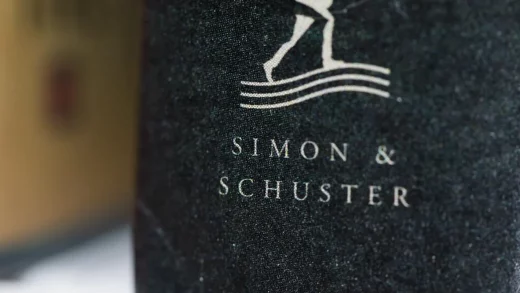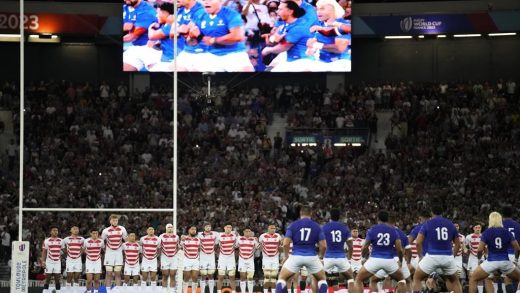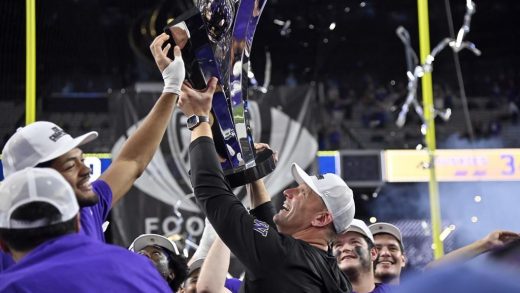Sagkeeng First Nation actor propelled into Marvel Cinematic Universe

When she was a teenager, Katarina Ziervogel had a drawerful of nerdy T-shirts and an Avengers poster plastered on her bedroom wall.
Now, the 27-year-old Kelvin High School graduate is onscreen as part of the ultimate comic book entertainment juggernaut: the Marvel Cinematic Universe.
Two years ago, Ziervogel, an emerging screenwriter with little to no acting experience, saw a casting call on social media for the role of Taloa, a character in the Disney+ miniseries Echo.
RUTH BONNEVILLE / WINNIPEG FREE PRESS Katarina Ziervogel had been focusing on screenwriting when she saw a casting call for a deaf Indigenous woman’s role.
The series producers were looking for a deaf Indigenous actor in her late 20s or early 30s. Ziervogel — a member of Sagkeeng First Nation with Anishinaabe, Mohawk and German heritage who is also deaf — could hardly believe it. She hesitated at first but, encouraged by her friends and family, Ziervogel eventually sent in a submission.
“I went for it, because I figured I’d regret it if I didn’t go for it,” she tells the Free Press over Google Chat, typing her answers out with a patient, considerate smile.
Six months later, the producers asked the Edmonton-born Ziervogel to send in a self-taped audition. Three weeks after that, they sent her an official offer.
Having only ever acted in a re-creation scene in a documentary about the crisis surrounding missing and murdered Indigenous women, Ziervogel was cast in a series co-starring actors such as Academy Award nominee Graham Greene, Reservation Dogs star Devery Jacobs, Tantoo Cardinal and Tatanka Means, seen most recently in Martin Scorsese’s Oscar-nominated Killers of the Flower Moon.
[embedded content]
Ziervogel, who graduated from Toronto Metropolitan University with a degree in media production, had read the Echo comic books in high school. First appearing in 1999 as a character in the Daredevil series, Echo is Maya Lopez, a deaf member of the Choctaw Nation caught up in the criminal syndicate of Kingpin, played in the series, which was released Jan. 10 on Disney+, by Vincent D’Onofrio.
Lopez is played by Menominee actor Alaqua Cox, who is also deaf; Ziervogel plays her mother in flashbacks.
The reason Ziervogel hadn’t acted a lot before Echo wasn’t only because she was a tad camera-shy.
“I really didn’t pursue (acting) because not only is there a lack of opportunities, but it’s hard to make a reliable career out of it, especially because there’s not a lot of onscreen roles calling for Indigenous, deaf women,” she says.
Ziervogel instead pursued other avenues in the film industry, diversifying her skillset and making strides as a screenwriter. Last year, a film she co-wrote, Finality of Dusk, premièred at the Whistler Film Festival and played the Red Nation Film Festival. The Hollywood Reporter wrote that the film’s approach to sound design breaks new ground for deaf moviegoers.
[embedded content]
Taking place in 2046 amid environmental devastation, that film follows a character named Ishkode (the Ojibwe word for fire) and another named Niife (the Yoruba word for love) as they protect one another from the destruction.
The film’s director, Madison Thomas, asked Ziervogel to write with her because she knew she was a fellow sci-fi fanatic. But the director was struck by Ziervogel’s intuitive sense for story and character, particularly impressed by her suggestion to make the film’s antagonist, Odin, a deaf man.
“This brought the character to a whole different level and Kat did a ton of great character development to turn him into a fully fleshed-out and complex character,” says Thomas.
“Kat also did a ton of work with the actor who plays Odin (Chris Dodd) and I know Chris was empowered to be portraying a character written by another member of the deaf community.
“Kat gets the characters she writes on a very emotional level, so I’m not surprised she’s getting into acting as well. Honestly, as a creative, I think the deaf talent pool is one of the most untapped talent pools in Canada.”
“(With Echo) for the first time I felt like that’s something I actually could see myself being represented in”–Katarina Ziervogel
With Finality of Dusk and Echo, along with other recent deaf-centred films such as CODA and Sound of Metal, that pool is making a major splash, with the productions enriched by their informed depictions of the varying experiences of deaf people.
While she says some films do a less-than-stellar job at representing deaf stories, let alone Indigenous stories, a major reason Ziervogel felt confident about Echo was that the show had Indigenous and deaf writers and crew members, along with ASL and Indigenous consultants on set.
“That’s when I knew this show was in good hands, because they’ve given a platform for Indigenous and deaf people to ensure the authenticity of both communities is being represented properly,” she says.
“(With Echo) for the first time I felt like that’s something I actually could see myself being represented in. There’s been deaf representation and Indigenous representation (in film and television), but not simultaneously. So, that’s very special.
“And for this role, it was such a special privilege to play an Indigenous deaf woman whose daughter is also Indigenous and deaf. That’s a special connection they have.”
Shooting the show was a whirlwind, bringing Ziervogel to Atlanta, far away from the microbudget film universe she’d previously worked in.
“It was an interesting experience for sure to go from an indie to a major studio production,” says Ziervogel, who is learning Ojibwe and Plains Indian Sign Language.
It was also a tremendous learning experience, she says, giving her a chance to work alongside actors such as D’Onofrio, Greene, Cardinal and Zahn McClarnon, who stars in the AMC series Dark Winds and appears in the FX series Fargo and Reservation Dogs.
“I got to talk with Tantoo and Graham, who were very welcoming, and it felt like they were actually my family,” she says of the two established Indigenous actors. “I do remember Tantoo said that it’s our turn, as the next generation, to continue to create more paths of opportunities in terms of storytelling for the next generation that comes after us, just as Tantoo’s and Graham’s generation did for us. So, it’s important that we keep it going. I see that as our duty.”
Appearing in the series has already opened doors for Ziervogel, who has a few writing projects in development already and more onscreen opportunities on the horizon.
Eventually, she would like to join a writers’ room for television, and wouldn’t mind acting in more projects either.
“It’d be great to have my own production company too,” she says.
“I want to be able to create opportunities for Indigenous deaf people, especially when it comes to acting.”
Credit: Sagkeeng First Nation actor propelled into Marvel Cinematic Universe


